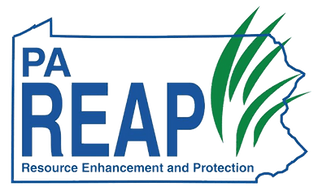top of page

AGRICULTURE

.jpg)

The Agriculture Conservation Assistance Program (ACAP) is a cost-share program that provides financial and technical assistance for the implementation of best management practices (BMPs) on agricultural operations within the Commonwealth to reduce nutrient loading and soil erosion impacts to local streams and rivers.
Applications are brought to a local advisory group (LAG) for review and ranking. Operations located in priority watersheds that have a resource concern will be prioritized.
ACAP was created through the Clean Streams Fund established by the FY2022-2023 Pennsylvania State Budget and will continue annually. ACAP is administered by the State Conservation Commission (SCC) and delegated to participating conservation districts for local implementation of the program.
Examples of Eligible Best Management Practices (BMPs):
Grazing plans
Livestock stream crossings
Riparian buffers
Cover crops
To schedule a site visit or request application assistance, please contact Matt Kerr at mkerrccd@gmail.com or call 814-393-6018 (office) or 814-221-1941 (cell).
.
Applications will be due Spring 2026 for the next round of funding.
Pre-application site visits must be scheduled by
February 13th, 2026.




Are nutrients and/or soil from your farm going into nearby waterways?
Funding is available to help!
Agriculture Conservation Assistance Program (ACAP)
Every farm in Pennsylvania that land applies manure, whether they generate the manure or import it from another operation, is required to have a written Manure Management Plan.
Did you know?
REAP is a first-come, first-served program that enables farmers, businesses, and landowners to earn PA income tax credits to offset the cost of implementing conservation practices, known as best management practices (BMPs), that benefit their farms and work to protect water quality at the same time.
Resource Enhancement and Protection (REAP) Program

Annual Western PA Grazing Conference
.avif)
A day filled with informative sessions, expert speakers, and networking opportunities with fellow graziers. Don't miss out on the chance to learn, share ideas, and stay up-to-date with the latest trends in grazing.
The Western PA Grazing Conference Committee, comprised of conservation organizations (including the Clarion Conservation District) and local farmers, organizes this conference every year to promote sustainable grazing practices to the farming community. The conference provides a wealth of educational information to both new and experienced farmers.
Click on the button below for more information / to access the conference website!
bottom of page